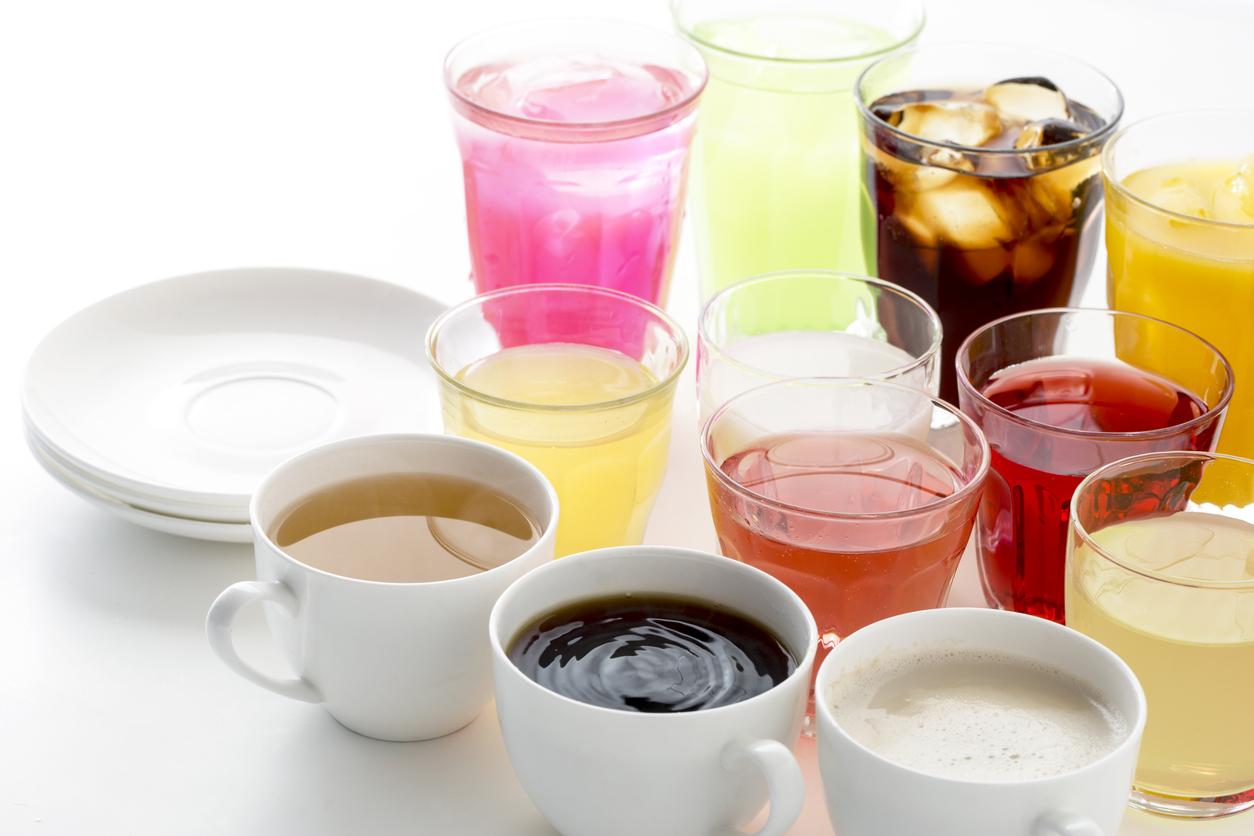Cultivated in more than 100 countries, coffee is one of the most consumed beverages on the planet. Its taste and characteristics differ according to the species, but also the nature of the soil, the climate and the altitude and, of course, the transformation of the green bean by roasting.
Small cup, big contributions
Besides caffeine, a cup of coffee also provides minerals : especially potassium (80 g per cup), but also magnesium, calcium, sodium, iron, zinc and copper, as well as vitamins of group B (B2, B3, B5 and B6). As for its amount of polyphenols antioxidants, it is really impressive: between 200 and 550 mg per cup (depending on the degree of roasting). According to a study by NutriNet-Santé (May 2010), coffee is even the first source of intake for these (well before fruits and vegetables and just before tea), which are actively and quickly absorbed by the body and protect against the diseases of aging (cancer, degenerative diseases), as well as cardiovascular illnesses. It is now established that not only does it reduce the risk ofheart attack (thanks to its antioxidant effects), but also that it does not raise the blood pressureprevents calcification of the arteries and reduces the risk of death from cardiovascular origin after 50 years (from 3 cups a day).
A performance booster
We often drink coffee to stay awake and be more productive and focused at work, for example. Real good idea! Indeed, caffeine is a so-called “psychoactive” substance, which has real effects on cognitive functions because it is able to cross the blood-brain barrier and act on the brain. Thus, it stimulates our attention, alertness and concentration abilities, as well as long-term memory and motor skills. Even better, coffee would be neuro-protective and would stimulate neurogenesis (the process of creating neurons). In humans, it protects against cognitive decline, Alzheimer’s disease and of thestroke (it would lower the risk of this type of accident by 56% in healthy people). Still, we sometimes suspect that caffeine is not the only cause in this avalanche of benefits: its association with other nutrients present in the drink (in particular antioxidant polyphenols) is very likely of real importance, and there remains to accurately assess the share of each.
Real slimming and digestive effects
The habit of drinking coffee at the end of a meal is quite beneficial because it stimulates gastric acid secretions, bile production and colon motricity (a study carried out on volunteers has also shown that a third of them had then an urge to have a bowel movement following ingestion). Once ingested, caffeine has the particularity of increasing (slightly) thermogenesis, therefore energy expenditure, and can be an additional advantage – although moderate since it is about 70 kcal for 400 mg of caffeine – as part of a weight-loss diet. Last physical assets to stay in top shape: its protective effect against Type 2 diabetes (from one cup a day, unsweetened of course) has been validated by several studies and, finally, it increases physical performance during endurance sports (running, bikecross-country skiing…) and delays the appearance of the feeling of physical fatigue.
Its health benefits
• Antioxidant. Important (even essential) source of polyphenols which protect against the diseases of aging.
• It reduces the risk of myocardial infarction but also the calcification of the arteries (precursor sign of atherosclerosis), the risk ofstroke and mortality by heart disease.
• Stimulating attention and vigilance as well as long-term memory, and wards off cognitive decline as well as certain degenerative pathologies such as Alzheimer’s disease.
• It facilitates digestion reduces the risk of type 2 diabetes and improves physical and athletic performance.
For moderate consumption
If it is frankly beneficial around 3 to 5 cups a day, you should not abuse coffee either, which, taken in excess, tends to increase the heart rate (tachycardia), to increase anxiety and irritability, and to harm, sometimes strongly, the sleep(because caffeine is stimulating and exciting). Specialists therefore recommend limiting yourself to about 400 mg of caffeine per day, avoiding consuming it after 3 or 4 p.m. if you are sensitive to it. To know : the amount of caffeine is variable, 3 mg/150 ml (decaffeinated), 65 mg/150 ml (soluble coffee), 50 to 120 mg/150 ml (arabica), 150 to 250 mg/150 ml (robusta).
His CV 4.51 Cal/10 cl (1 cup of unsweetened coffee) • Fat 0.18 g • Carbohydrates 0.6 g • Protein 0.12 g • Fiber 0 g
Read also:
Three cups of coffee a day: a health asset?
Coffee: friend or foe?
















